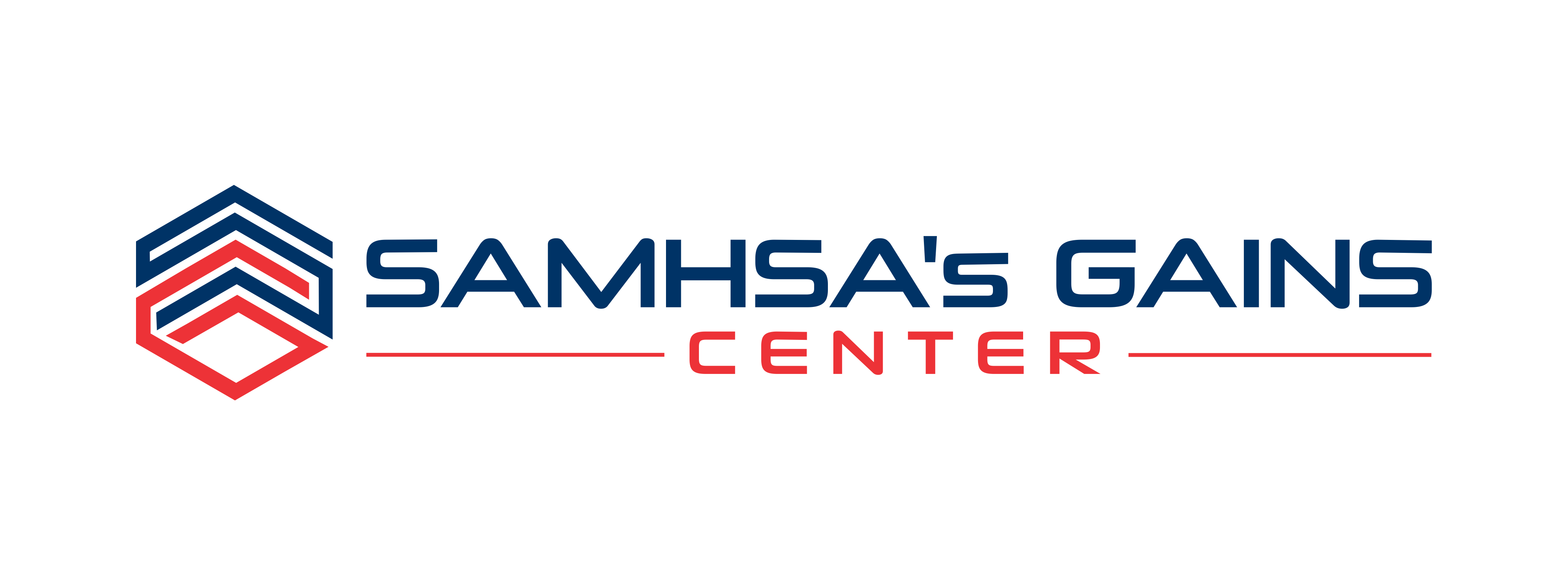SAMHSA’s GAINS Center for Behavioral Health and Justice Transformation, operated by Policy Research Associates, Inc., and known nationally for its work regarding people with behavioral health needs involved in the criminal justice system, convened in 2020 three topical Communities of Practice to work intensively with select communities on the following topics:
- Equity and Inclusion in Adult Drug Courts
- Using the Sequential Intercept Model (SIM) to Guide Medication-assisted Treatment Implementation (new eligibility criteria!)
- Improving Recovery Support Services for People with Substance Use Disorders Returning from Jail or Prison
About the Criminal Justice Communities of Practice
Each Community of Practice (CoP) brought together selected teams for an intensive learning, strategic planning, and implementation process to address local issues and needs within their topic area. Each CoP engaged subject-matter experts and will facilitate peer-to-peer learning and information sharing. A unique blend of onsite and virtual methods offered each team an intimate and collaborative environment in which to learn and complete its work while providing a virtual forum to share with other communities and receive an array of technical assistance from subject-matter experts across the country. The overarching objectives for this opportunity included:
- Enhancing collective knowledge of key issues and familiarity with the topic
- Understanding promising, best, and evidence-based practices to address the topic and related issues
- Developing strategic plans that focus on the issue, including defining assignments, deadlines, and measurable outcomes to be reported
- Increasing knowledge about the challenges and lessons learned in implementing strategies through peer-to-peer sharing
Application and Selection Process
- Applications for these solicitations closed on February 12, 2020
- General requirements:
- Narrative (up to five pages)
- Expectations/guidelines will differ by CoP topic
- List of key stakeholders who will participate in the team
- Letters of support or commitment from key partners
- Availability on the virtual meeting date
CoP Topics
Equity and Inclusion in Adult Drug Courts
This CoP focused on creating and implementing strategies to reduce racial and ethnic disparities in access to adult drug court programs. This CoP is designed to support jurisdictions through a process that moves selected programs from recognizing disparities that exist to implementing practice changes around critical access, service-delivery, or decision-making points that are driving the disparate access. This CoP challenged participating adult drug courts to begin implementing inclusive and informed strategies that actively address and reduce disparities. Sites were supported by expertise from both GAINS Center staff and consultants, as well as from the National Drug Court Institute (NDCI). A focus of this Community of Practice was the implementation of the Equity and Inclusion: Equivalent Access Assessment and Toolkit (NDCI, 2019) in each participating adult drug court. Applicants seeking to participate in this opportunity must focus efforts on a particular adult drug court program.
Using the SIM to Guide Medication-assisted Treatment Implementation
Fatal drug overdoses are rising at an alarming rate across the United States, due primarily to opioid involvement. According to the Centers for Disease Control and Prevention, opioid-related deaths increased by nearly 600% in the two-decade period ending in 2017, when more than 47,000 persons died as a result of opioid overdoses. The research literature confirms that, compared to the general population, persons with behavioral health needs are higher healthcare utilizers, experience disproportionately higher rates of illness and premature death, and are at higher risk for substance use disorders and justice system involvement.
This CoP identified and propose remedies for barriers to the implementation of medication-assisted treatment (MAT) for participating communities. Sites developed strategic plans to enhance existing approaches for the implementation of MAT, promote the expansion of MAT-focused policies and procedures at other criminal justice system intercept points, and identify methods for measuring system outcomes. Each selected site in the CoP had the opportunity to work in collaboration with subject-matter experts and teams in up to five other sites to share local strategies and solicit feedback.
Improving Recovery Support Services for People with Substance Use Disorders Returning from Jail or Prison
More than half of people incarcerated in state prisons and two-thirds of people sentenced to jail have substance use disorders. For programs that provide services and supervision to people with substance use disorders returning to the community following terms of incarceration, obtaining housing and securing employment presents a major challenge. People with substance use disorders with criminal histories face barriers to housing and employment. Homelessness and residential instability make it difficult for people recently released from jail prison to focus on their treatment and recovery from substance use disorders, maintain sobriety, obtain and retain employment, and comply with program and supervision mandates.
The goal of this Community of Practice is to improve strategies related to housing and employment for existing reentry programs that serve adults with substance use disorders returning from jail or prison. Through participation in this CoP, reentry programs were expected to work with current and new stakeholders, including community corrections/community supervision, substance use treatment providers, housing agency director(s)/local public housing authority director, employment training programs and services, peer-based recovery support services, and local or state correctional representatives. In addition, reentry programs were expected to bring in representatives responsible for correctional programming (e.g., cognitive-behavioral interventions targeted at criminal thinking and behavior). The goal of the Improving Recovery Support Services for People with Substance Use Disorders Returning from Jail or Prison Community of Practice is to advance policies and practices around housing approaches, employment skills and services, and peer-based recovery services to support individuals returning from jails and prisons in their recovery from substance use disorders.


